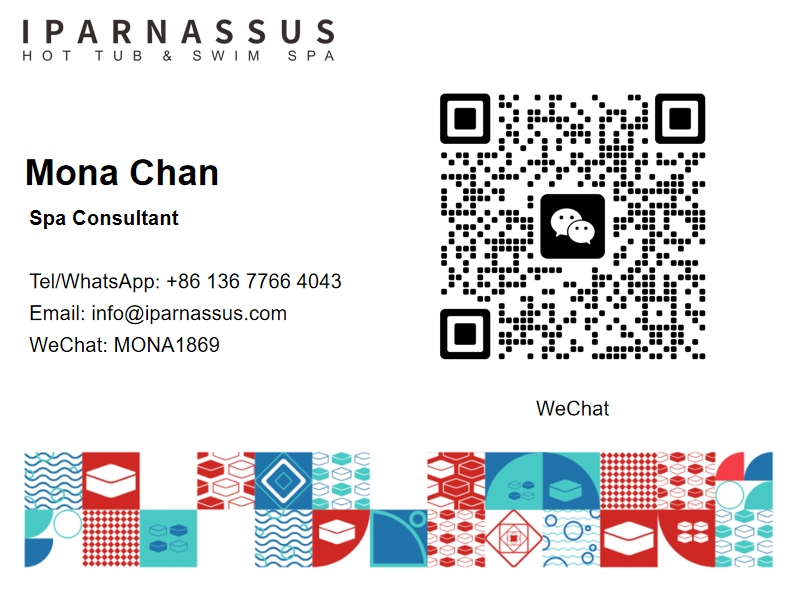Does Drinking in a Hot Tub Get You Drunk Faster?
2024-07-26 18:00:47
Many people enjoy relaxing in a hot tub with an alcoholic beverage, especially while on vacation or at a hotel. However, this popular pastime raises an important question: does drinking in a hot tub actually get you drunk faster? The combination of alcohol consumption and soaking in warm water can indeed have some unique effects on the body. This blog post will explore the relationship between hot tubs, alcohol, and intoxication, as well as address some common questions about hotel hot tub safety and etiquette.
Are hotel hot tubs sanitary?
Hotel hot tubs are a popular amenity that many guests look forward to using during their stay. However, concerns about cleanliness and hygiene are not uncommon. The question of whether hotel hot tubs are sanitary is a valid one, considering the number of people who may use them and the warm, moist environment they provide.
To address these concerns, most reputable hotels follow strict cleaning and maintenance protocols for their hot tubs. These typically include regular water testing, chemical treatments, and filtration to ensure the water remains safe for guests. The Centers for Disease Control and Prevention (CDC) provides guidelines for proper hot tub maintenance, which many hotels adhere to.
Despite these measures, it's important to note that no public hot tub can be guaranteed 100% sanitary at all times. Bacteria and other microorganisms can proliferate rapidly in warm water, especially if maintenance is not performed consistently. Some common issues that can affect hot tub cleanliness include:
1. Inadequate chlorine or bromine levels
2. Improper pH balance
3. Infrequent water changes
4. Insufficient filtration
To minimize your risk when using a hotel hot tub, consider the following tips:
1. Observe the water: It should be clear, not cloudy or foamy.
2. Check for a strong chemical smell: While some chlorine odor is normal, an overpowering smell could indicate improper chemical balance.
3. Look for visible debris or algae: These are signs of poor maintenance.
4. Shower before and after use: This helps reduce the introduction of contaminants and removes any residual chemicals from your skin.
5. Avoid swallowing the water: Even in well-maintained hot tubs, it's best not to ingest the water.
6. Limit your time: Extended exposure to hot water can increase your risk of dehydration and bacterial exposure.
While hotel hot tubs can be a relaxing and enjoyable amenity, it's always wise to exercise caution and good judgment when using shared facilities.
How long should you stay in a hotel hot tub?
The duration of your hot tub session is an important factor to consider for both safety and enjoyment. While there's no one-size-fits-all answer, general guidelines can help you determine an appropriate length of time to spend in a hotel hot tub.
Most experts recommend limiting hot tub sessions to 15-30 minutes at a time. This recommendation is based on several factors:
1. Body temperature regulation: Prolonged exposure to hot water can raise your body temperature to potentially dangerous levels. Your body may struggle to cool itself effectively, leading to overheating or heat exhaustion.
2. Dehydration risk: Sitting in hot water causes you to sweat, even if you don't notice it. This can lead to dehydration, especially if you're not drinking water to compensate.
3. Skin sensitivity: Extended time in hot water can cause your skin to become overly sensitive or pruney. Some people may also experience skin irritation from prolonged exposure to chlorine or other chemicals used to maintain the hot tub.
4. Cardiovascular stress: Hot water causes your blood vessels to dilate, which can put additional stress on your heart. For people with certain health conditions, this could potentially be risky.
However, the "ideal" time can vary based on several factors:
1. Water temperature: Most hot tubs are set between 100-104°F (37.8-40°C). The hotter the water, the less time you should spend in it.
2. Personal health: If you have certain health conditions like heart disease, high blood pressure, or are pregnant, you may need to limit your time even further or avoid hot tubs altogether.
3. Age: Older adults and young children may be more sensitive to heat and should generally spend less time in hot tubs.
4. Hydration levels: If you're well-hydrated and continue to drink water during your soak, you may be able to stay in slightly longer.
5. Alcohol consumption: If you're drinking alcohol, it's advisable to spend less time in the hot tub due to increased risks of dehydration and impaired judgment.
To make the most of your hotel hot tub experience while staying safe:
1. Start with shorter sessions and gradually increase if you feel comfortable.
2. Take breaks: If you want to enjoy the hot tub for longer, consider taking periodic breaks to cool down and rehydrate.
3. Listen to your body: If you start feeling lightheaded, nauseous, or uncomfortable, exit the hot tub immediately.
4. Stay hydrated: Drink plenty of water before, during, and after your hot tub session.
5. Be aware of others: In a hotel setting, be considerate of other guests who may want to use the hot tub. If it's busy, consider limiting your time to allow others a turn.
Remember, the goal is to relax and enjoy your time, not to set an endurance record. By following these guidelines, you can safely enjoy the hotel hot tub without putting your health at risk.
Can you get a bacterial infection from a hot tub?
While hot tubs can provide a relaxing and enjoyable experience, they can also pose certain health risks if not properly maintained. One of the most common concerns is the potential for bacterial infections. The warm, moist environment of a hot tub can indeed be an ideal breeding ground for various types of bacteria, some of which can cause infections in humans.
Several types of bacteria can thrive in hot tubs:
1. Pseudomonas aeruginosa: This bacterium can cause "hot tub folliculitis," a skin infection that results in a red, itchy rash.
2. Legionella: The bacteria responsible for Legionnaires' disease can grow in poorly maintained hot tubs, potentially causing a severe form of pneumonia if inhaled through water vapor.
3. Mycobacterium avium complex (MAC): These bacteria can cause lung infections, especially in people with weakened immune systems.
4. E. coli and other fecal bacteria: These can be introduced into the water by users who don't shower before entering the hot tub.
The risk of infection depends on several factors:
1. Maintenance practices: Properly maintained hot tubs with adequate chlorine or bromine levels and regular cleaning are less likely to harbor harmful bacteria.
2. User behavior: Showering before entering the hot tub and avoiding swallowing the water can reduce the risk of infection.
3. Personal health: People with open wounds, compromised immune systems, or certain chronic health conditions may be more susceptible to infections.
4. Duration of exposure: Longer periods in the hot tub increase the likelihood of exposure to potentially harmful bacteria.
To minimize your risk of bacterial infection when using a hotel hot tub:
1. Observe the water quality: If the water appears cloudy, has a strong odor, or visible debris, avoid using the hot tub.
2. Shower before and after use: This helps remove bacteria from your skin and rinses off any chemicals after your soak.
3. Avoid submerging your head: This reduces the risk of inhaling water or getting it in your ears or eyes.
4. Don't use the hot tub if you have open cuts or sores: These can provide an entry point for bacteria.
5. Limit your time: As mentioned earlier, staying in the hot tub for extended periods increases your risk of exposure.
6. Stay hydrated: Drinking plenty of water can help flush your system and maintain your body's natural defenses.
7. Pay attention to posted rules and maintenance schedules: Most hotels will post information about when the hot tub was last cleaned or serviced.
While the risk of bacterial infection from a well-maintained hot tub is relatively low, it's not zero. By being aware of the potential risks and taking appropriate precautions, you can significantly reduce your chances of experiencing any health issues related to hot tub use.
In conclusion, while drinking in a hot tub may indeed accelerate the effects of alcohol due to factors like dehydration and increased blood flow, it's important to approach this activity with caution. The combination of alcohol and hot water can lead to impaired judgment, increased risk of accidents, and potential health issues. When using hotel hot tubs, always prioritize safety and hygiene. Be mindful of the time you spend in the hot tub, be aware of the potential for bacterial infections, and follow best practices for hot tub use. By doing so, you can enjoy the relaxing benefits of a hot tub soak while minimizing potential risks.
For more information on hot tub installations and to find out more about our products, please feel free to contact us at info@iparnassus.com.
References:
1. Centers for Disease Control and Prevention. (2022). Healthy Swimming: Hot Tubs/Spas.
2. American Journal of Public Health. (2019). Public Health Risks Associated with Recreational Water Facilities.
3. Journal of the American Medical Association. (2020). Effects of Alcohol Consumption in Hot Environments.
4. International Journal of Environmental Research and Public Health. (2021). Microbial Safety of Recreational Waters.
5. Alcohol Research: Current Reviews. (2018). Alcohol and Thermoregulation.
6. Journal of Applied Physiology. (2017). Cardiovascular Responses to Heat Stress and Dehydration.
7. Clinical Infectious Diseases. (2019). Hot Tub-Associated Infections: A Review.
8. Water Research. (2020). Disinfection Byproducts in Swimming Pools and Hot Tubs.
9. Injury Prevention. (2018). Alcohol-Related Aquatic Injuries and Drowning.
10. Environmental Health Perspectives. (2021). Chemical Exposures in Swimming Pools and Hot Tubs.
Send Inquiry
Related Industry Knowledge
- How Long Does a Swim Spa Take to Heat Up?
- How to Sink a Swim Spa?
- Do You Like Your Swim Spa?
- How to Fill Hot Tub?
- How Big is a Swim Spa?
- Why do people use hot tubs
- How Much Space do I Need for a 5 Person Hot Tub in My Backyard?
- How Cold is a Cold Plunge Tub?
- Are Outdoor Hot Tubs Worth It?
- Should I Get a Swim Spa?



